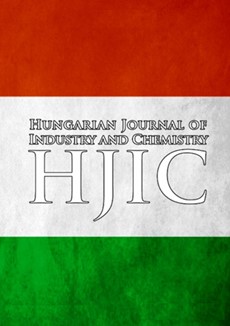Separation of the Enantiomers of p-Chiral Cyclic Phosphorus Compounds
DOI:
https://doi.org/10.1515/192Abstract
The antipodes of 1-aryl-, 1-alkyl- and 1-alkoxy-3-methyl-3-phospholene 1-oxides 1a-h were separated in good yields and in high enantiomeric excesses (up to 99% ee) by resolution via formation of diastereomeric complexes with (–)-(4R,5R)-4,5-bis(diphenylhydroxymethyl)-2,2-dimethyldioxolane (–)-2 (TADDOL) or (–)-(2R,3R)-?,?,?’,?’-tetraphenyl-1,4-dioxaspiro[4.5]decan-2,3-dimethanol (–)-3. The resolution process of 1 with (–)-3 was further examined in various mixture of solvents. Stereostructure of the supramolecular formations and absolute configuration of the resulting 3-phospholene oxides (–)-1a, (+)-1e, (+)-1f were elucidated by single crystal X-ray crystallography.1-4 The method extended to the resolution of the 1-phenyl-3-methyl-3-phospholene 1-sulfide2 4, 6-diethylamino-dibenzo[c.e][5,6]oxaphosphorine 6-oxide 5, 1-[(1’R,2’S,5’R)-(–)-menthyl]-3-methyl-3-phospholene 1-oxide 6 and 3- and 5-methyl-1-phenyl-4-chloro-1,2-dihydro-phosphinine 1-oxide 7, suggesting that our novel procedure may be of general value.Downloads
Published
2008-09-01
Issue
Section
Articles
How to Cite
Separation of the Enantiomers of p-Chiral Cyclic Phosphorus Compounds. (2008). Hungarian Journal of Industry and Chemistry, 36(1-2). https://doi.org/10.1515/192




